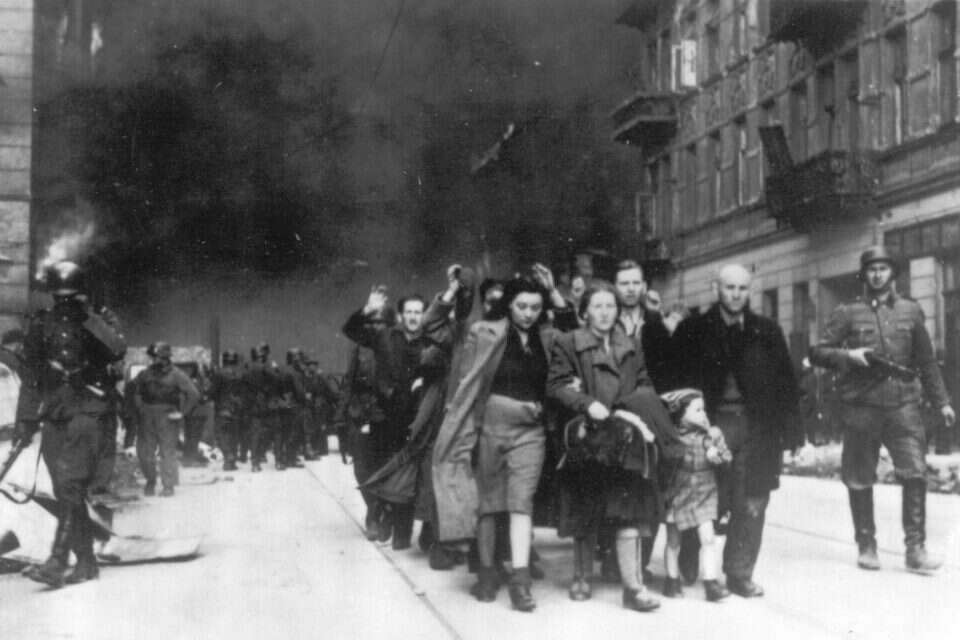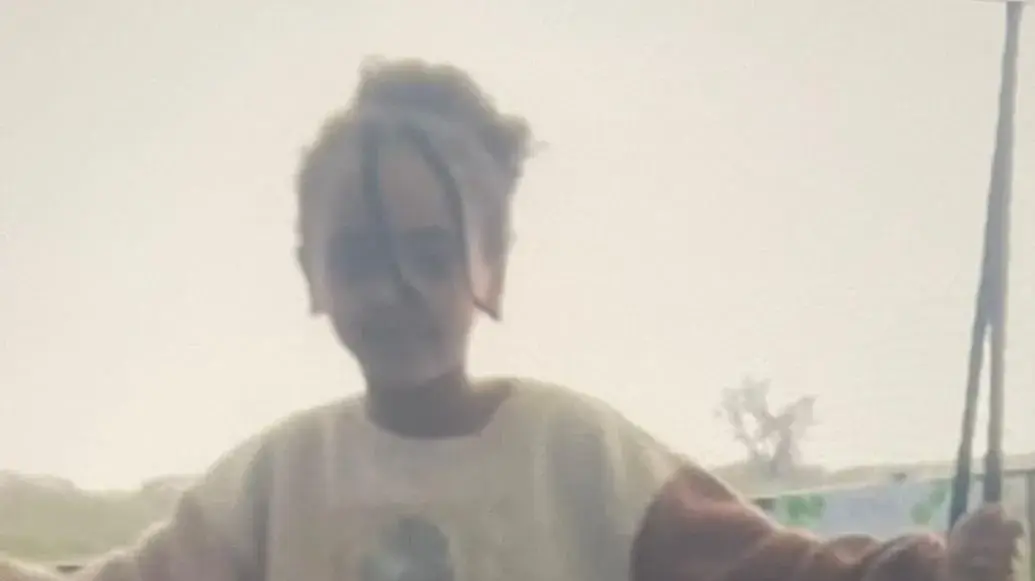One of the surprising features of the Holocaust memoir genre is that the ending is always known in advance, but readers remain in suspense throughout. So is "To the bright light of today", the diary of a Jewish doctor in Poland in the years 1939-1945, by Dr. Edward Reicher.
Reicher was a famous Jewish dermatologist and sexologist in Lodz on the eve of the war, and survived with his wife and daughter.
A scarred end, but relatively good compared to the fate of the other millions.
He recorded the events in a diary in the many hiding apartments he changed after moving to Warsaw.
The original diary was lost during the Warsaw Uprising in 1944, but was recovered by him immediately after the war.
Reicher, who moved to Germany in the 1960s, did not find the courage to publish the book.
His only daughter, Elisabeth Bizoer-Reicher, claimed that after the war no one in Europe wanted to hear about the past from the Jewish angle.
After her father's death in 1975, she published the book in Polish, English and French.
In Israel, the writer and translator Benjamin Tana was enthusiastic and offered to translate it voluntarily, but Yad Vashem and the ghetto fighters refused to publish it.
In the Israel of the late 1970s, they claimed that there were too many books with evidence from the war.
Only last November, Mater Publishing lifted the gauntlet and published the book in Hebrew.
Dr. Edward Reicher in train worker's uniform, 1943, photo: courtesy of Mater Publishing
"I didn't enjoy hearing my father's stories," writes Bezuar-Reicher in the introduction to the book, "nor did I like to remember my own stories. I was afraid of the purifying power of memory. I was afraid that the irrationality that would be released from my memory would displace any rational thought. Finally, it dawned on me that I could finally come to terms with Life".
In recent years, many memoirs have been published written by Holocaust survivors at family expense and subsidized by Yad Vashem.
The question of what turns a manuscript from a book of private memoirs intended to commemorate a specific family into a book whose documentation is of public value has become more relevant than ever.
Apart from the collective need to collect more and more reliable evidence against Holocaust deniers, is the only reason to cleanse the memories, as Bezoar-Reicher wrote?
"In the bright light of today" describes the events in simple and clear language, outlines the horrors and the moments of kindness without sentimentality or judgment.
He investigates the mindset of the people who did the good and bad things, wondering about the human decision-making mechanism.
Unlike memoirs, the documentation in the book was done in real time, so that the descriptions are a description of the present reality with strict adherence to facts, with the precision of a doctor, and because of this create a chilling historical document from a unique point of view.
"I did not write the book to take revenge, nor because I refuse to forgive," Reicher writes in the introduction, "my book does not try to pretend to be a literary work. It only reports on the life of a Jewish doctor, who felt the worst years of persecution... dying is not Wisdom. Wisdom is living and fighting evil."
The uniqueness of the book is not in the quality of the writing like the "war notebooks" of Marguerite Diras, but in the character of its author who before the war was a renowned, connected and prestigious doctor, whom the war managed to surprise.
Reicher was sent in the first days of the war with the other men in Lodz to the city of Zhiradov.
The transfer that the Poles made to the men was to maintain a conscription force, but soon Zhiradov was also occupied and all the Jewish men were sent to the first labor camp of its kind, long before the infamous camps where Jews were forcibly employed until their extermination.
Reicher was saved from this camp thanks to a Christian Polish doctor who saved him, and he notes that despite Dr. Jankowski being a noble and rare man in those days, he met quite a few people like him during the long years of the war, including a Polish prostitute who saved him in the most difficult days. After the war, he helped her And see to it that you receive the sign of Righteous Among the Nations right then and there.
At the beginning of the war, Reicher returned to his home in Lodz and discovered that reality had changed beyond recognition, and he was forced to make fateful decisions every day.
In those days of the beginning of 1940, Reicher's two brothers managed to reach Israel with the help of a lot of money, in what was considered an unusual event, but he chose to stay in Poland to take care of his elderly father, and moved with him to the ghetto.
Reicher has a fascinating personal angle regarding well-known events, including the meeting with the head of the Judenrat in the ghetto, Chaim Rumkowski, a controversial figure, nicknamed the "King of the Jews" and remembered for the "Children and Elderly Speech" on September 4, 1942, in which he asked the Jews to send the children to be exterminated.
Before the war they were neighbors on Polodniova Street in Lodz.
Rumkowski was the owner of a small factory and voluntarily managed the Jewish orphanage in nearby Helanovki.
"One day Rumkowski called and asked me to check on one of the girls at the orphanage. I made an appointment for him. To this day I can still see him standing in front of me. Tall, handsome, blue-eyed and fair-haired. He was worried and upset. The girl he brought with him was 8 years old and wearing a sweater.' Please check on the girl,' he said.
It turned out that the young girl was sick with gonorrhea, and in those days the disease was difficult to cure and required persistence in treatment.
Reicher suggested hospitalization, but Rumkowski was frightened and resisted.
"With tears, he begged me to cure the disease and promised to be eternally grateful," says Reicher.
The doctor diagnosed other girls who contracted the venereal disease at the institution, sent them to isolation, came twice a week to treat them until they were cured and refused to take payment.
After this incident, some of the mothers revealed to him what Rumkowski was doing to their daughters.
The mothers blackmailed him, and he had to lose his factory as a silence fee.
When the two met again in the ghetto, Rumkowski - instead of returning the favor to Reicher for helping with the gonorrheal girls at the orphanage - looked for a way to eliminate him, and Reicher was forced to make a daring escape to the Warsaw ghetto.
About half a million people lived in the ghetto at the time.
Freedom of movement was limited, but smuggling flourished.
The capitalists knew how to bribe the appropriate parties, and there were even flower stands in the ghetto.
There was also smuggling of goods out of the ghetto, and many children escaped to smuggle bread to their families.
Reicher describes German policemen who turned a blind eye to the children's actions, but also sadistic killers who found entertainment in shooting these children.
He records the talks about the rebellion and the conservative ultra-Orthodox factions, who saw an attack on the authorities as an attack on God. In the Warsaw ghetto, he finds a hiding place in an attic, and there he reluctantly meets Herman Hofle, an SS leader who played a significant role in the implementation of "Operation Reinhardt" to exterminate the Jews of Warsaw At Treblinka. Reicher was called from his hiding place in the attic above the Gestapo headquarters to treat the officer's skin disease, and would later testify against him for committing war crimes. √
To the bright light of today / Dr. Edward Reicher,
Polish: Nurit Limor, Mater Publishing, 271 p.
were we wrong
We will fix it!
If you found an error in the article, we would appreciate it if you shared it with us








